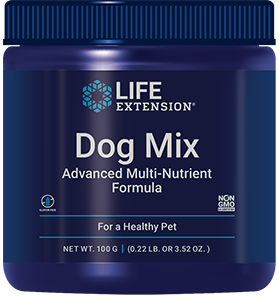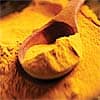Curcumin reduces urinary side effects of radiation therapy in prostate cancer patients
Tuesday, January 28, 2014. The Journal of Cancer Science & Therapeutics recently reported the outcome of a pilot trial of curcumin in prostate cancer patients which found a protective effect for the compound against the development of urinary symptoms caused by radiation therapy. While radiation therapy is frequently and effectively employed in prostate cancer, it can result in adverse effects, which can limit the dose of radiation administered.
Curcumin, derived from the spice turmeric, has been shown to help protect against the harmful effects of radiation while enhancing radiotherapy's benefit in cancerous cells. The present study included forty men with prostate cancer who were randomized to three grams per day BCM-95® curcumin divided between three meals or a placebo beginning one week prior to external beam radiotherapy and continuing until its completion. Quality of life questionnaires administered before radiotherapy and three months after its cessation assessed urinary and other functions.
Urinary symptoms were significantly worse after three months among men who received a placebo. However, individuals who received curcumin experienced milder symptoms, including those related to urinary frequency and daily activity limitation.
"To our knowledge this is the first randomized controlled trial investigating the radioprotective effect of curcumin in prostate cancer patients," write authors Jalal Hejazi and colleagues at Beheshti University of Medical Sciences. They note that curcumin has been shown to confer a radioprotective effect via a decrease in the expression of genes that promote inflammation and fibrosis. The compound also scavenges free radicals, inhibits lipid peroxidation and increases endogenous antioxidants. Additionally, it may help reduce the risk of secondary cancers caused by radiation.
"The present clinical trial has shown that curcumin can confer radioprotective effect in patients with prostate cancer who undergo radiation therapy through reducing the severity of radiotherapy related urinary symptoms which are of the most common side effects of
radiation therapy," the authors conclude. "Further studies with larger sample sizes and higher doses of curcumin are required to further confirm radioprotective effects of curcumin on different organs."
|
 |
|
What's Hot
Writing in an article published online on October 5, 2012 in the journal Carcinogenesis, German and Italian researchers report an anti-metastatic effect for curcumin, a compound that occurs in the spice turmeric, in an animal model of prostate cancer.
Previous experimentation by the team uncovered an inhibitory effect for curcumin against the expression of pro-inflammatory immunomodulator cytokines that include CXCL1 and CXCL2, which are associated with breast cancer metastases. The current research found a similar inhibitory action for curcumin in prostate carcinoma cells via inhibition of nuclear factor kappa-beta (NFκB). Upon testing curcumin in a mouse model of prostate cancer, a significant decrease in lung metastases was observed.
"Chronic inflammation can induce a metastasis prone phenotype in prostate cancer cells by maintaining a positive pro-inflammatory and pro-metastatic feedback loop between NFκB and CXCL1/-2," the authors write. "Curcumin disrupts this feedback loop by the inhibition of NFκB signaling leading to reduced metastasis formation in vivo."
"Due to the action of curcumin, the tumor cells synthesize smaller amounts of cytokines that promote metastasis," commented lead researcher Beatrice Bachmeier of Ludwig-Maximilians-University Munich. "As a consequence, the frequency of metastasis formation in the lungs is significantly reduced, in animals with breast cancer, as we showed previously, or carcinoma of the prostate, as demonstrated in our new study."
"This does not mean that the compound should be seen as a replacement for conventional therapies," she added. "However, it could play a positive role in primary prevention – before a full-blown tumor arises – or help to avert formation of metastases. In this context the fact that the substance is well tolerated is very important, because one can safely recommend it to individuals who have an increased tumor risk."
Dr Bachmeier is planning a clinical trial to evaluate the effects of curcumin in treatment-resistant prostate cancer patients.
|
 |
|
Latest Products
|
 |
|
|
Life Extension's Dog Mix is among the best products for protecting your pet's health. Just two scoops per day provide the vitamins your pet needs to stay healthy and strong. Dog Mix contains significant amounts of high-grade nutrients usually reserved for the most expensive human supplements. It contains flavonoids, amino acids, antioxidants, probiotics, essential fatty acids, methylation enhancers, and more.
In fact, many commercial pet foods do not contain the vitamins, amino acids, phytonutrients, and advanced antioxidants found in Dog Mix. Life Extension pet supplements contain the same premium-grade nutrients used in the products consumed by Life Extension members.
|
| |
 |
|
|
In recent years, scientists have focused intensely on the benefits of resveratrol supplements in supporting a healthy life span. Now dermatologists have uncovered the singular power of topical resveratrol to combat the appearance of wrinkles, fine lines, and other effects of skin aging.
To complement the beneficial effects of resveratrol on aging skin, a selection of high-potency black, green, and white tea polyphenols has been included in this formula to help preserve youthful skin tone and luster through their antioxidant activity.
Also included is the Aspalathus linearis herb, found only in a mountainous region of South Africa. This herb is one of the only sources of aspalathin, another potent antioxidant polyphenol whose distinct molecular structure complements the free radical-neutralizing action of resveratrol and tea polyphenols.
|
|
 |
|
Related Articles
|
|










